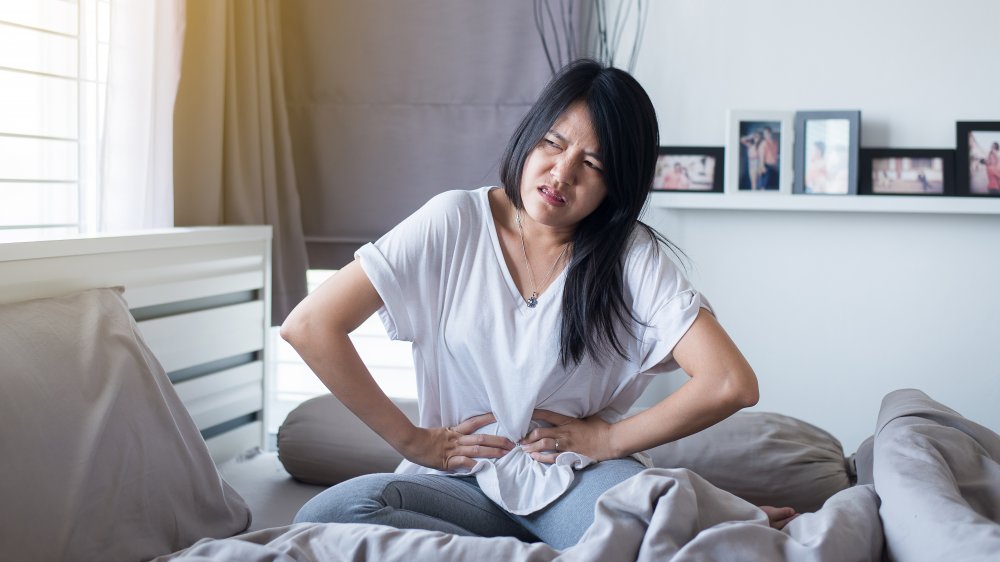The Surprising Thing Making Your Menstrual Cramps Worse
For most people, a few cups of coffee, tea, or soda are a regular part of daily life. But if you're a woman of reproductive age, it's important to know that those habits could be causing you pain or discomfort several days each month. It's not actually the drink, it's the caffeine in the drink that is the issue, as it can contribute to cramping during your period.
Painful periods, also called dysmenorrhea, are the most common menstrual complaint, according to the American College of Obstetrics and Gynecology. More than half of women experience some pain for at least part of their period every month.
There are two types of dysmenorrhea: primary and secondary. Primary is the one most women experience and is caused by increased levels of prostaglandins. It usually happens right before or when a period begins. Secondary is caused by problems within the reproductive system like endometriosis, fibroids, or infection, according to the Cleveland Clinic.
What's the problem with caffeine?
Cramps are caused by the uterus contracting, according to WebMD. During contractions, the uterus can inhibit nearby blood vessels, which cuts off the flow of oxygen to the organ. Cramps are the result. Caffeine is a vasoconstrictor, according to Livestrong, which means it also constricts blood flow, so it can make cramps worse.
According to one study, published in the Journal of Taibah University Medical Sciences, caffeine use is also a risk factor for longer periods and infrequent or irregularly-timed periods. Interestingly enough, the study found that chocolate was protective against premenstrual symptoms, however.
It's important to note that caffeine affects people differently, so while one person may be sensitive to the amount in one soda, another may drink several without effects. But caffeine has also been linked to symptoms like sleep problems, headaches, anxiety, and heart palpitations. So, if you're feeling anything unusual — and certainly if you're experiencing menstrual cramps — it's worth trying to adjust your caffeine intake to see what happens.


